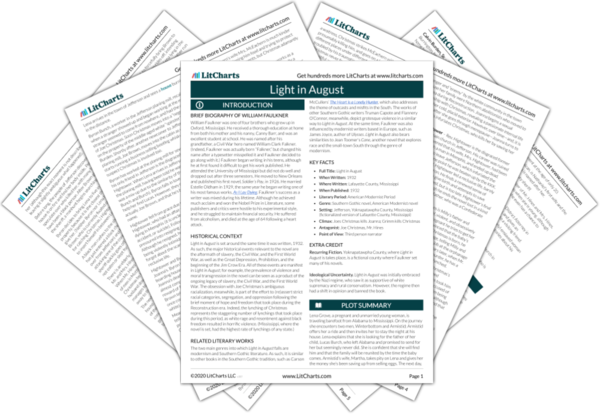At least to some people, Joe still appears to pass for white, and it is not clear how the dietician and the janitor know the “truth” of his race. From this conversation, one can deduce that the other children in the orphanage initially thought Joe was white too, before realizing (or deciding) that he was actually of mixed racial heritage. That it is unimaginable for a black child to be in a white orphanage highlights the severity of segregation in the world of the novel.
